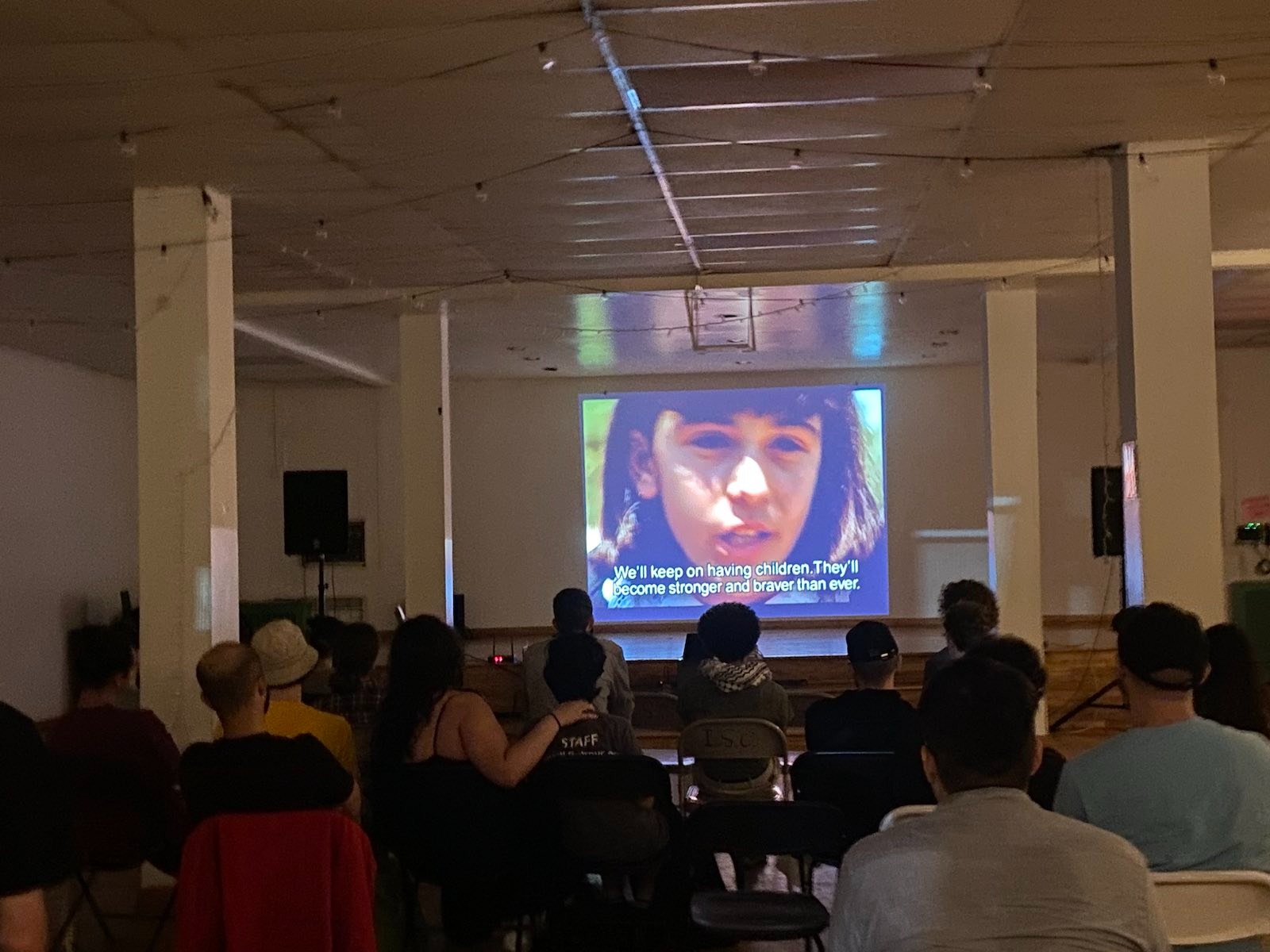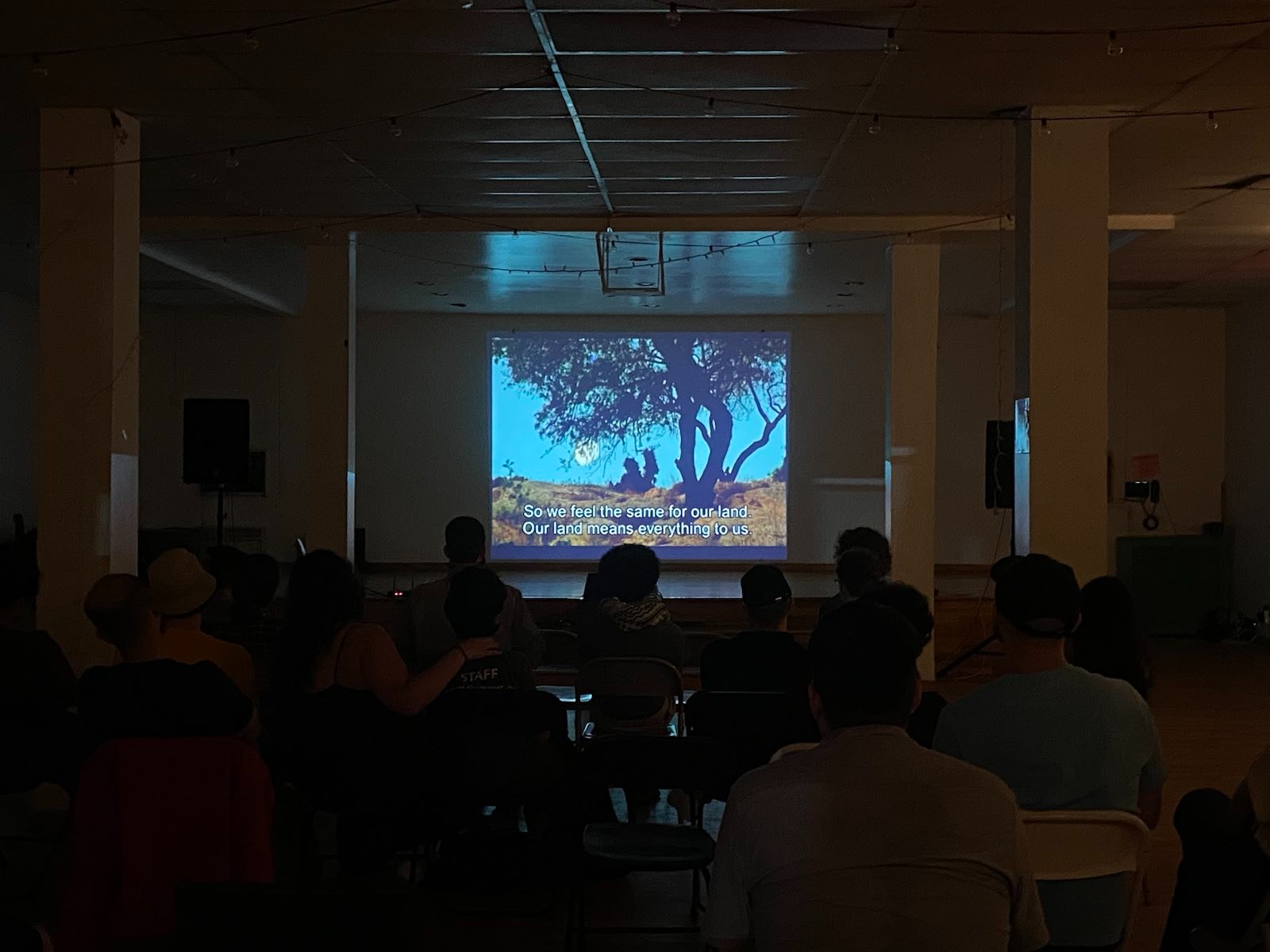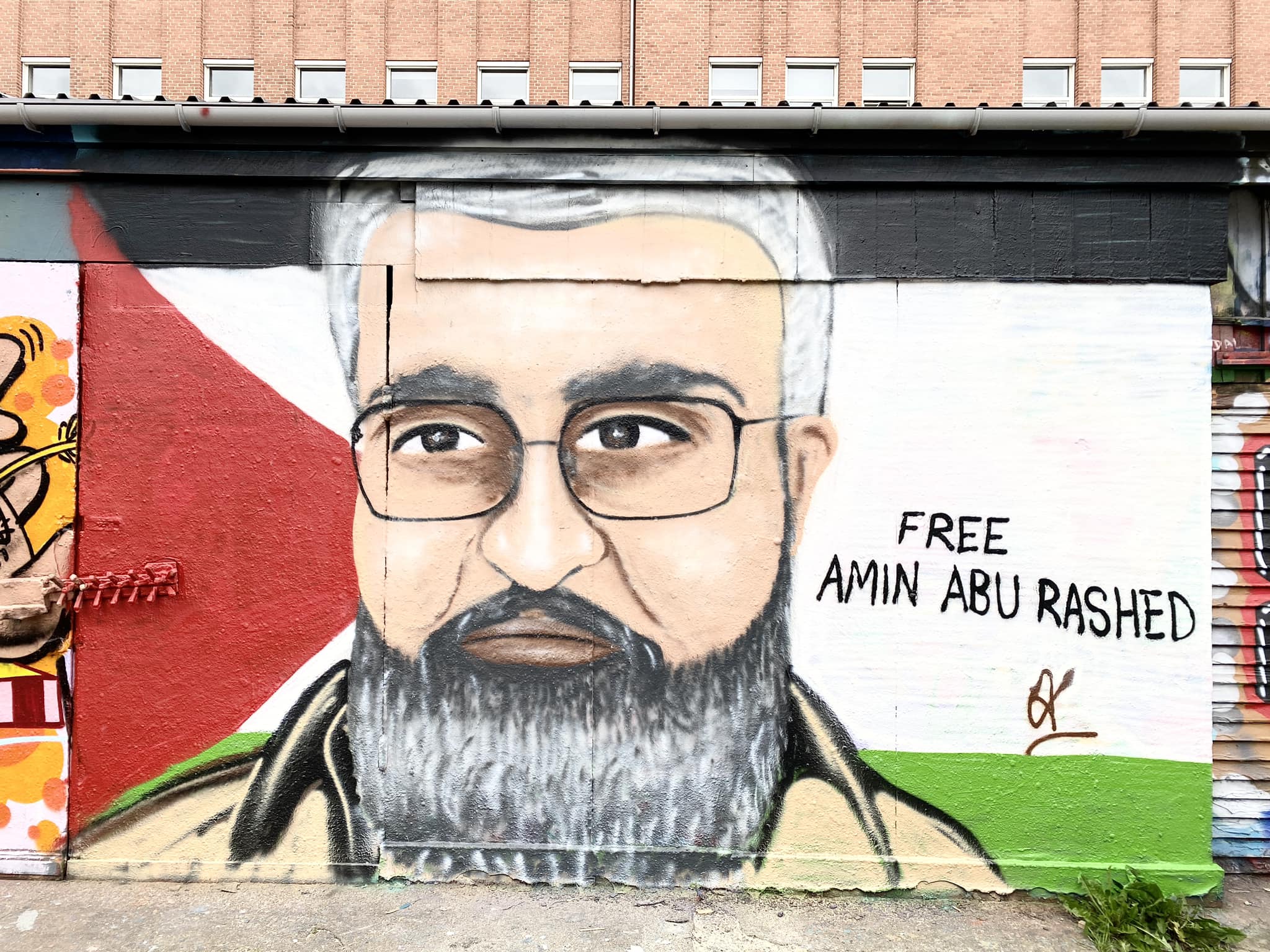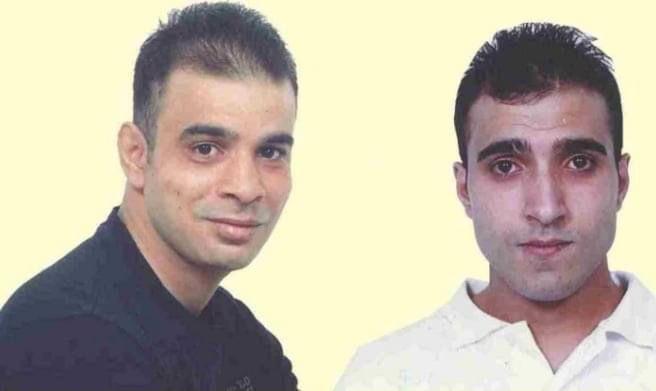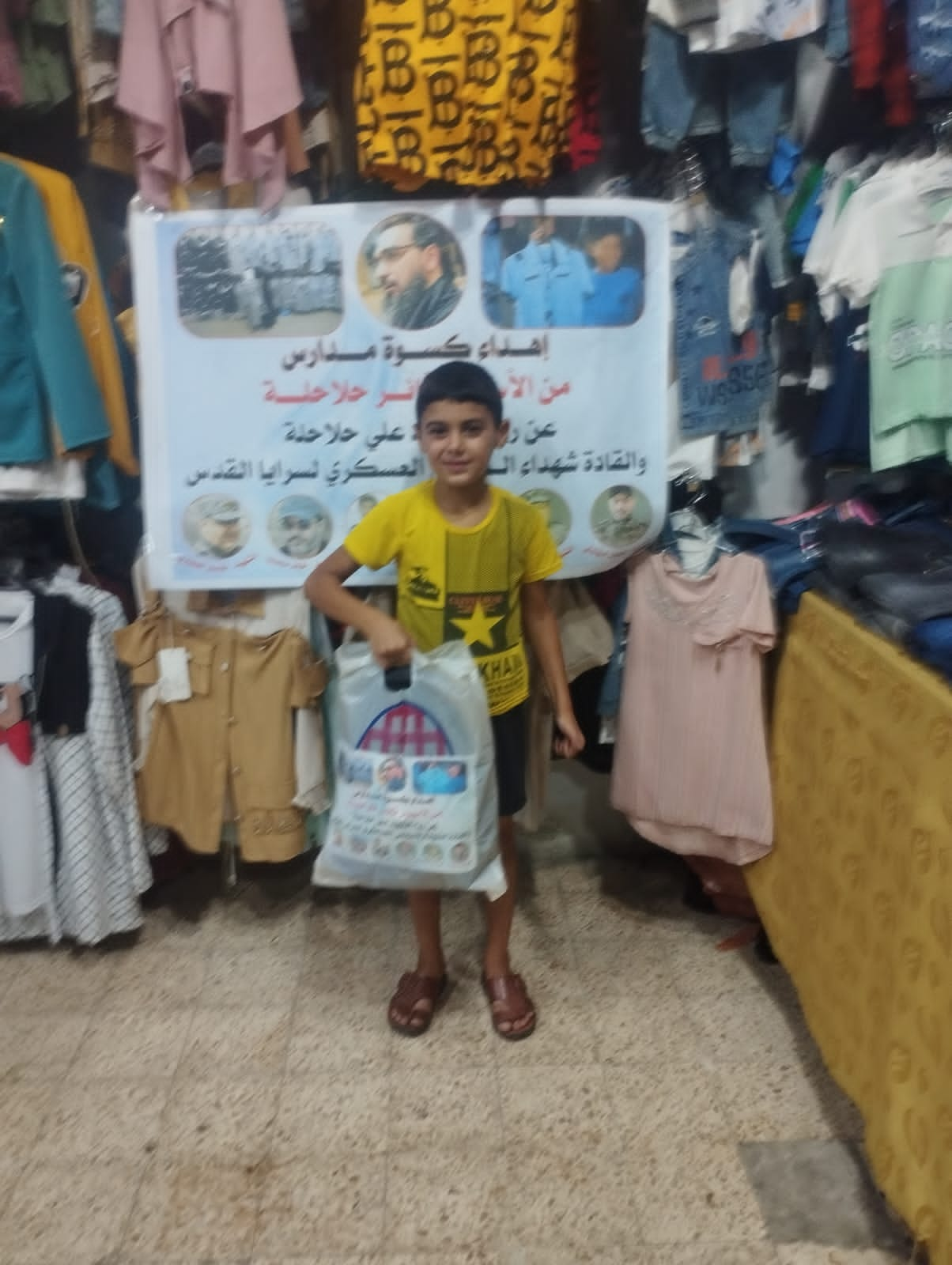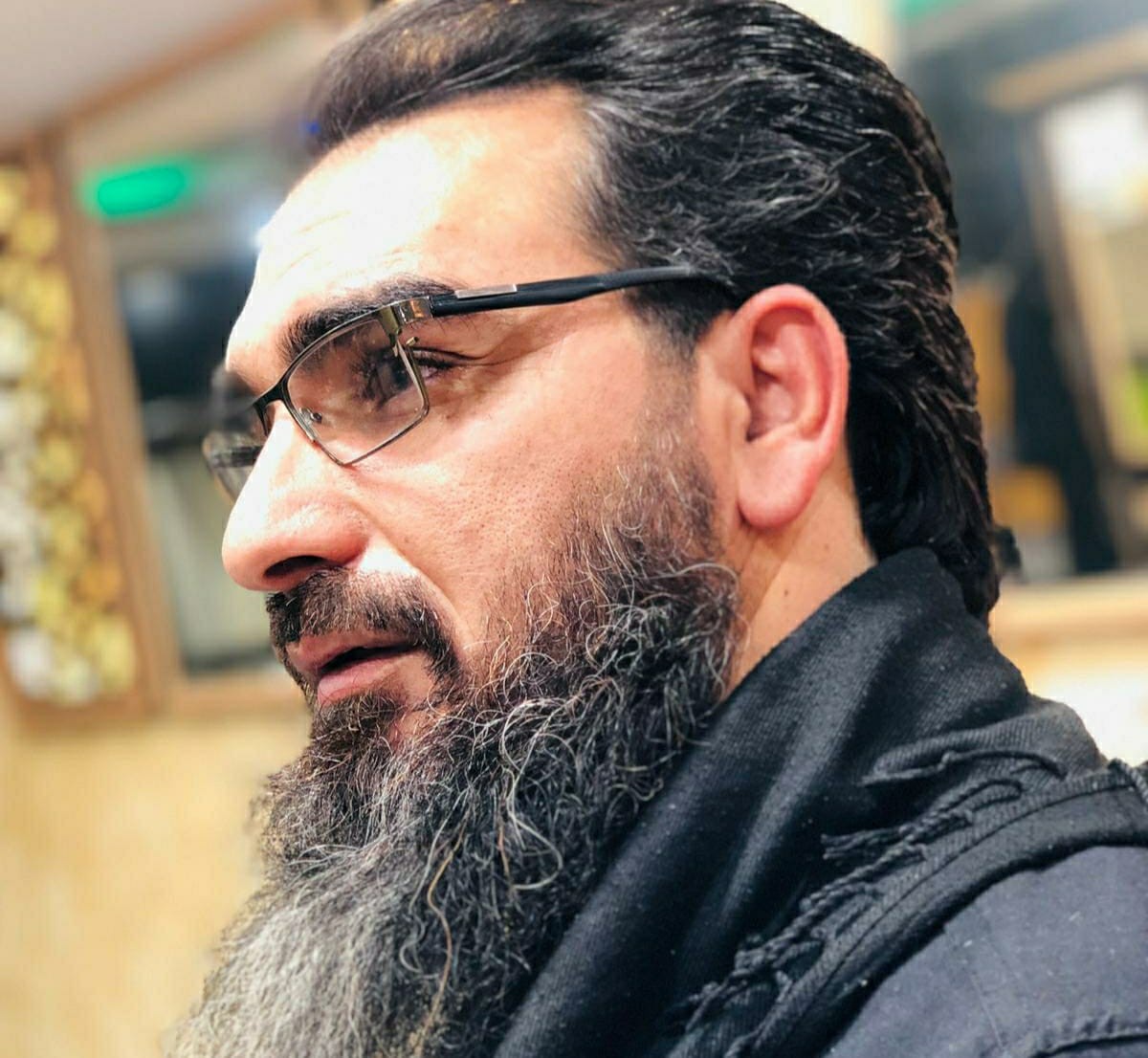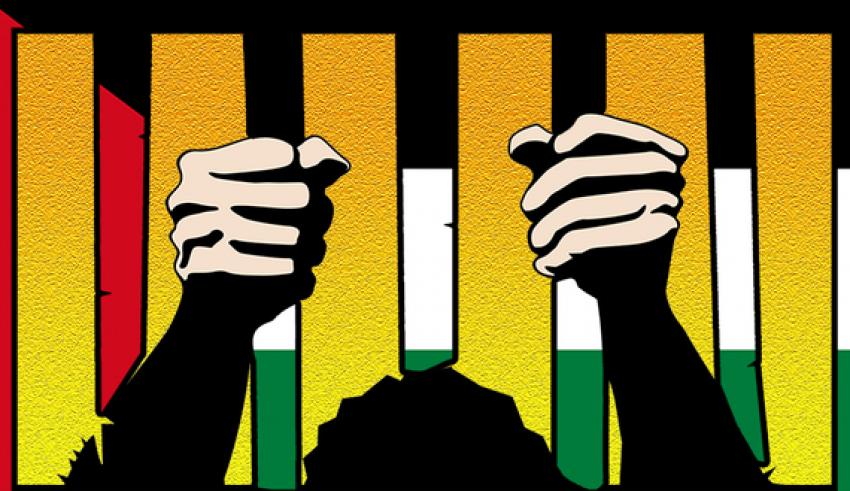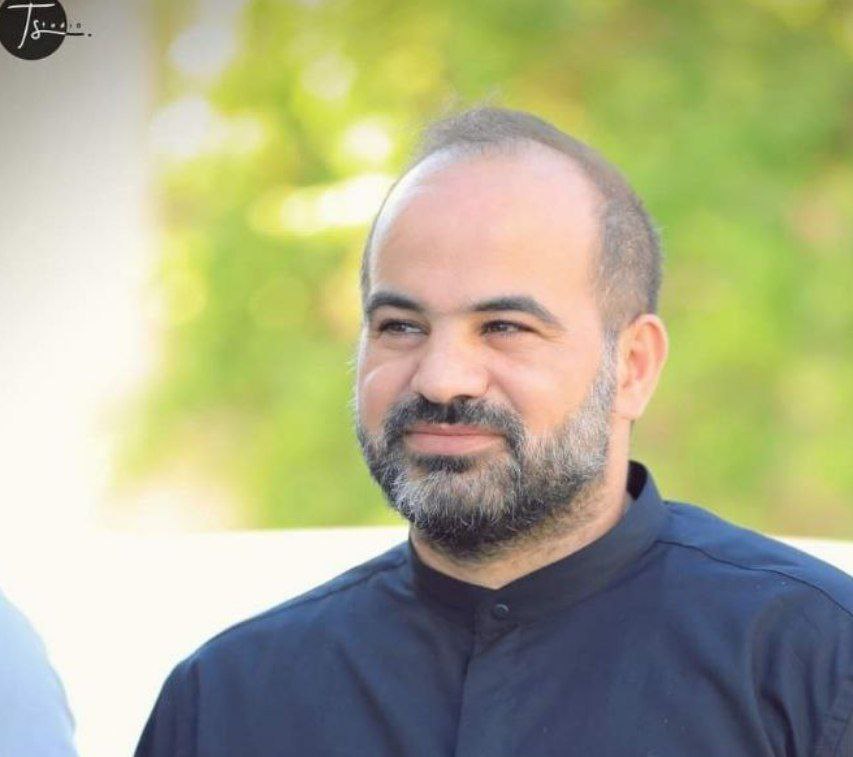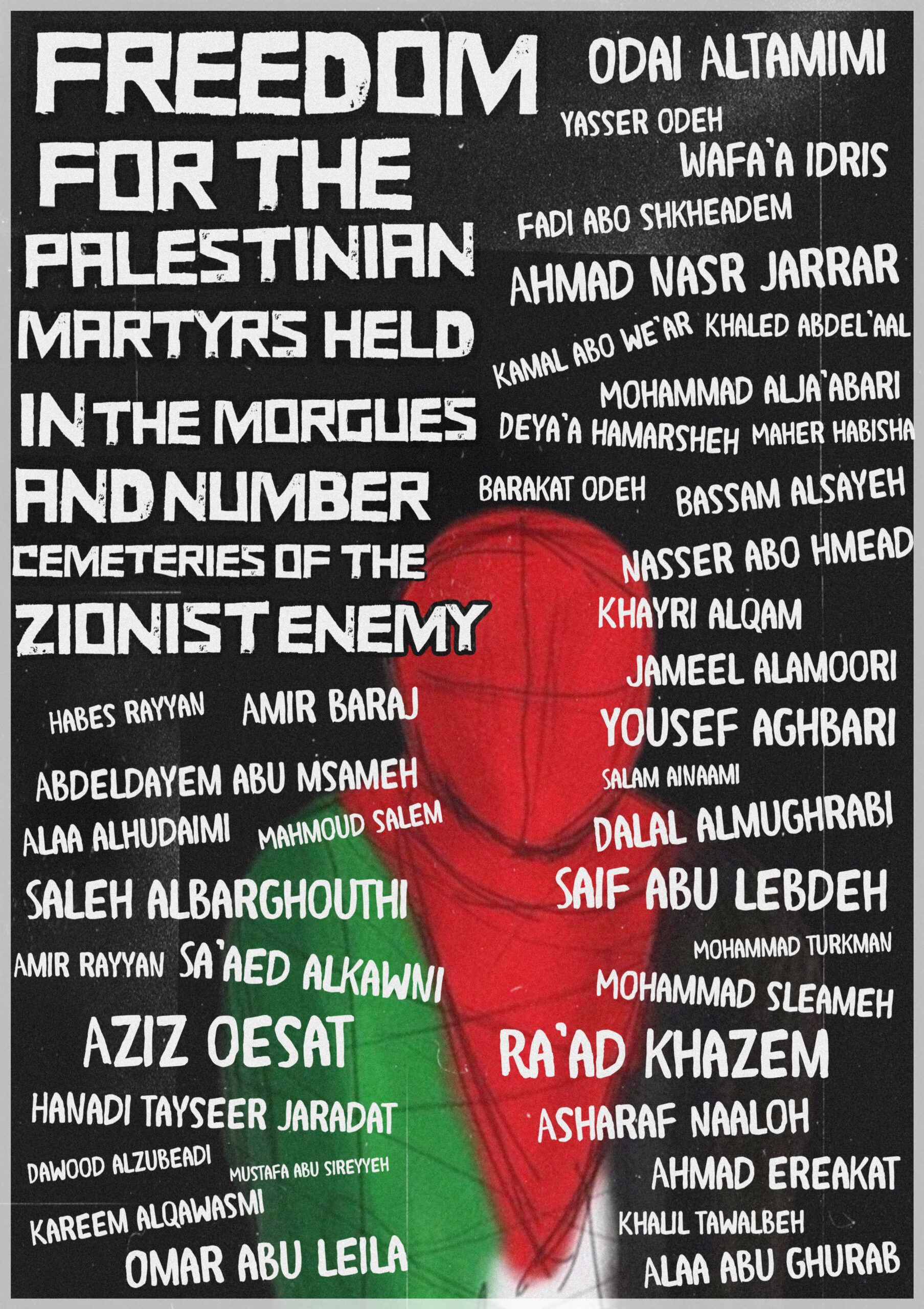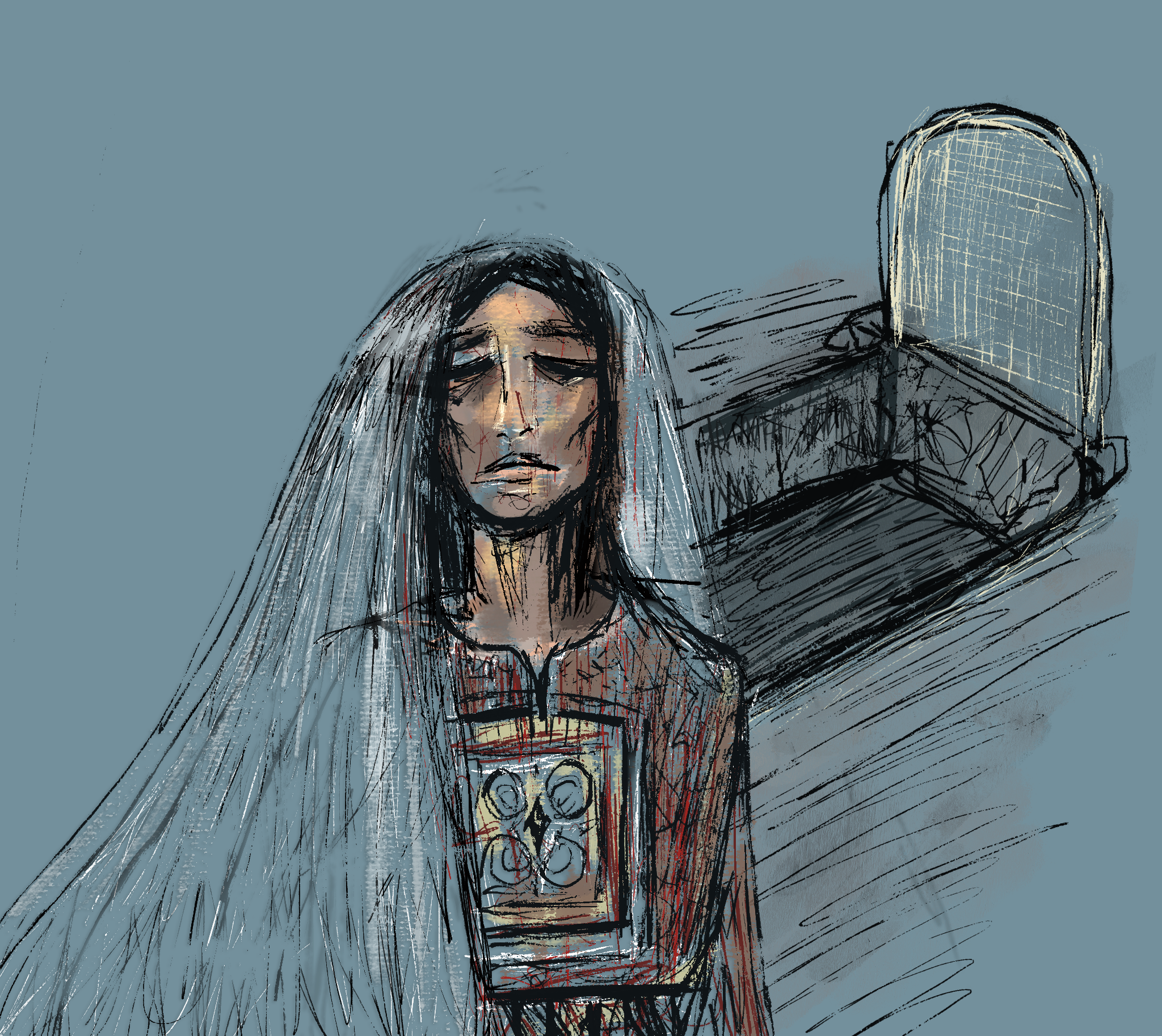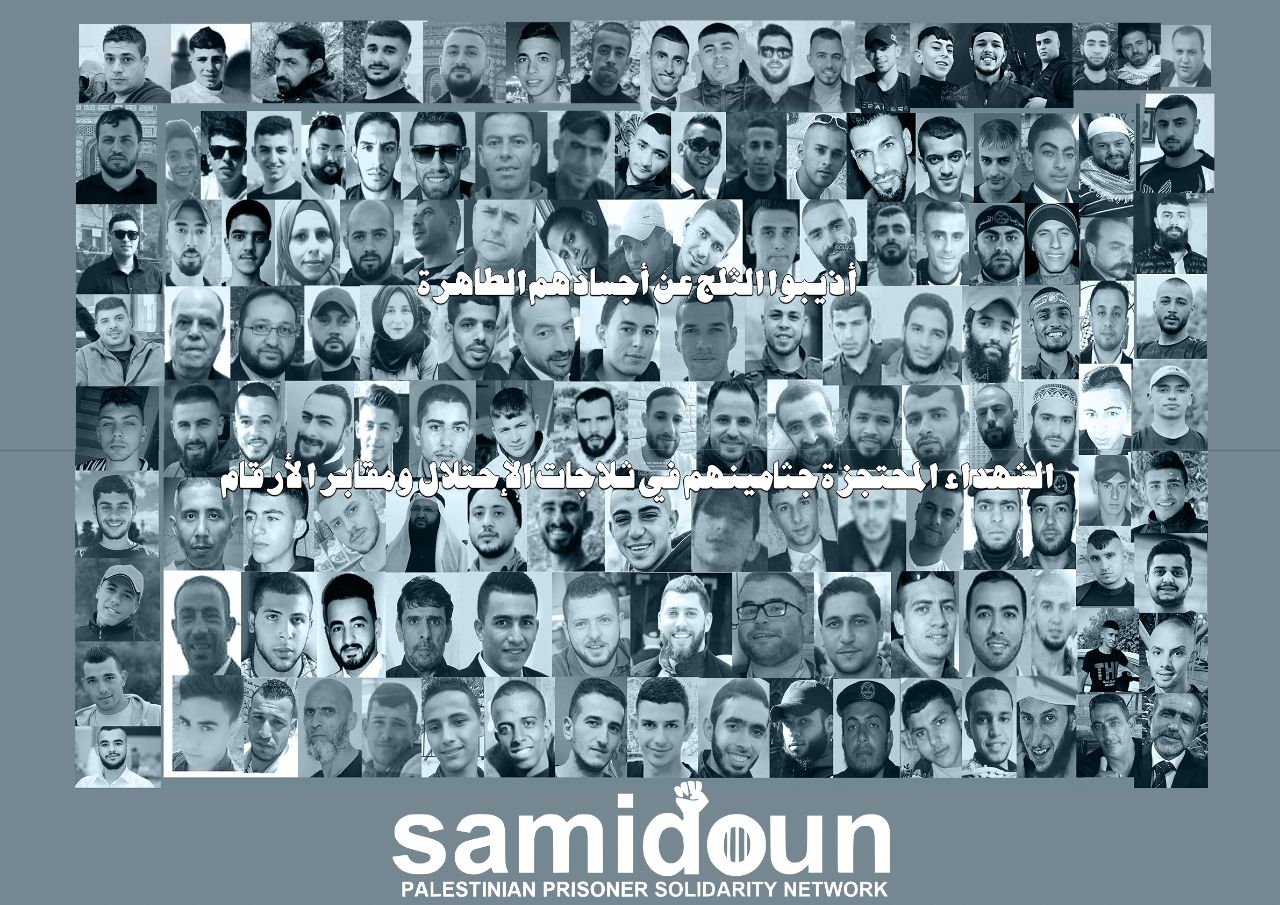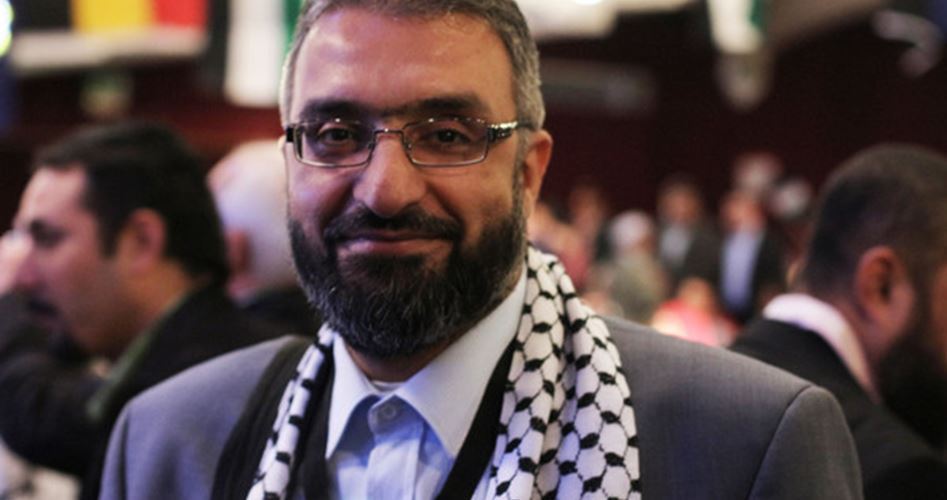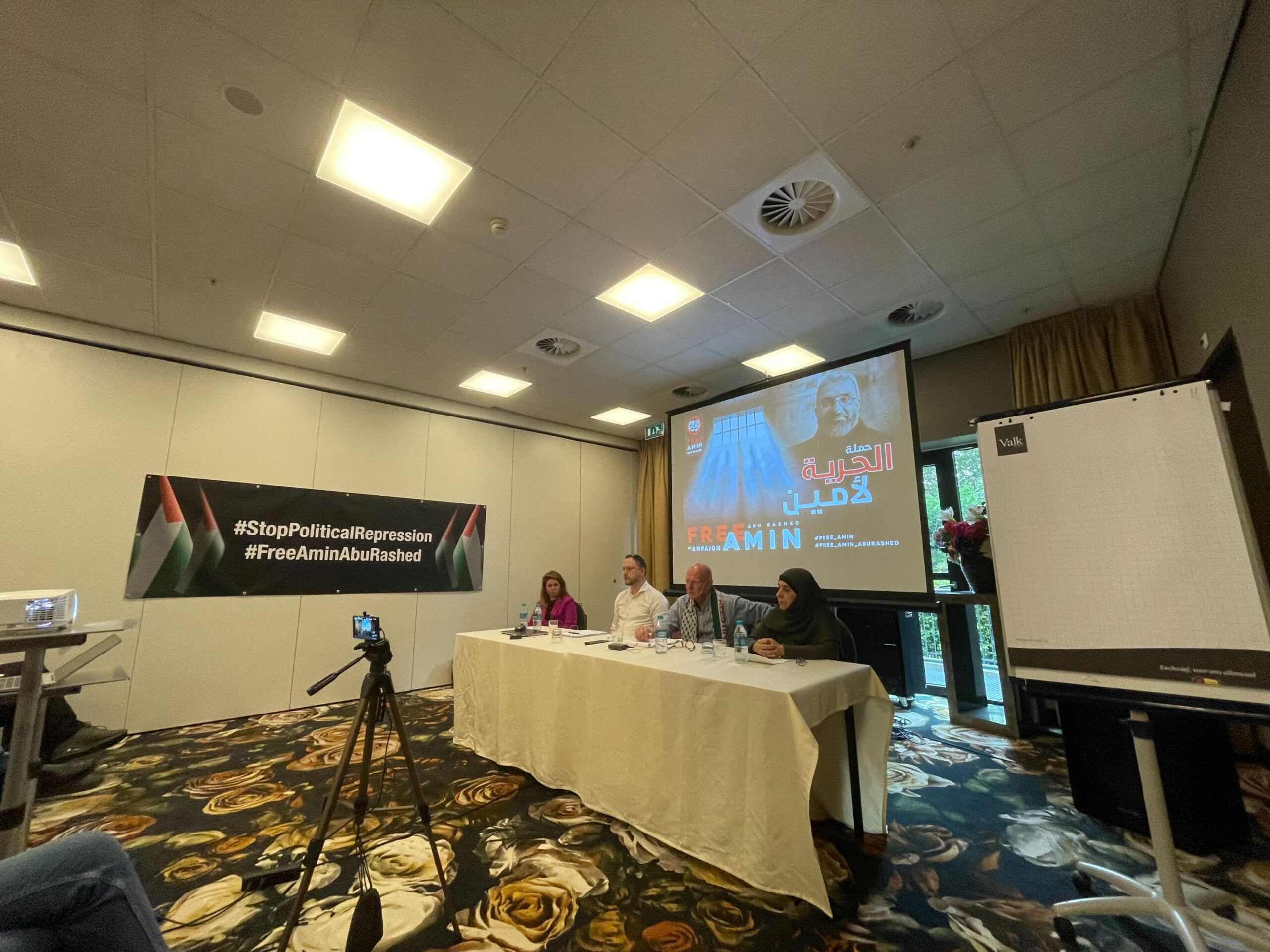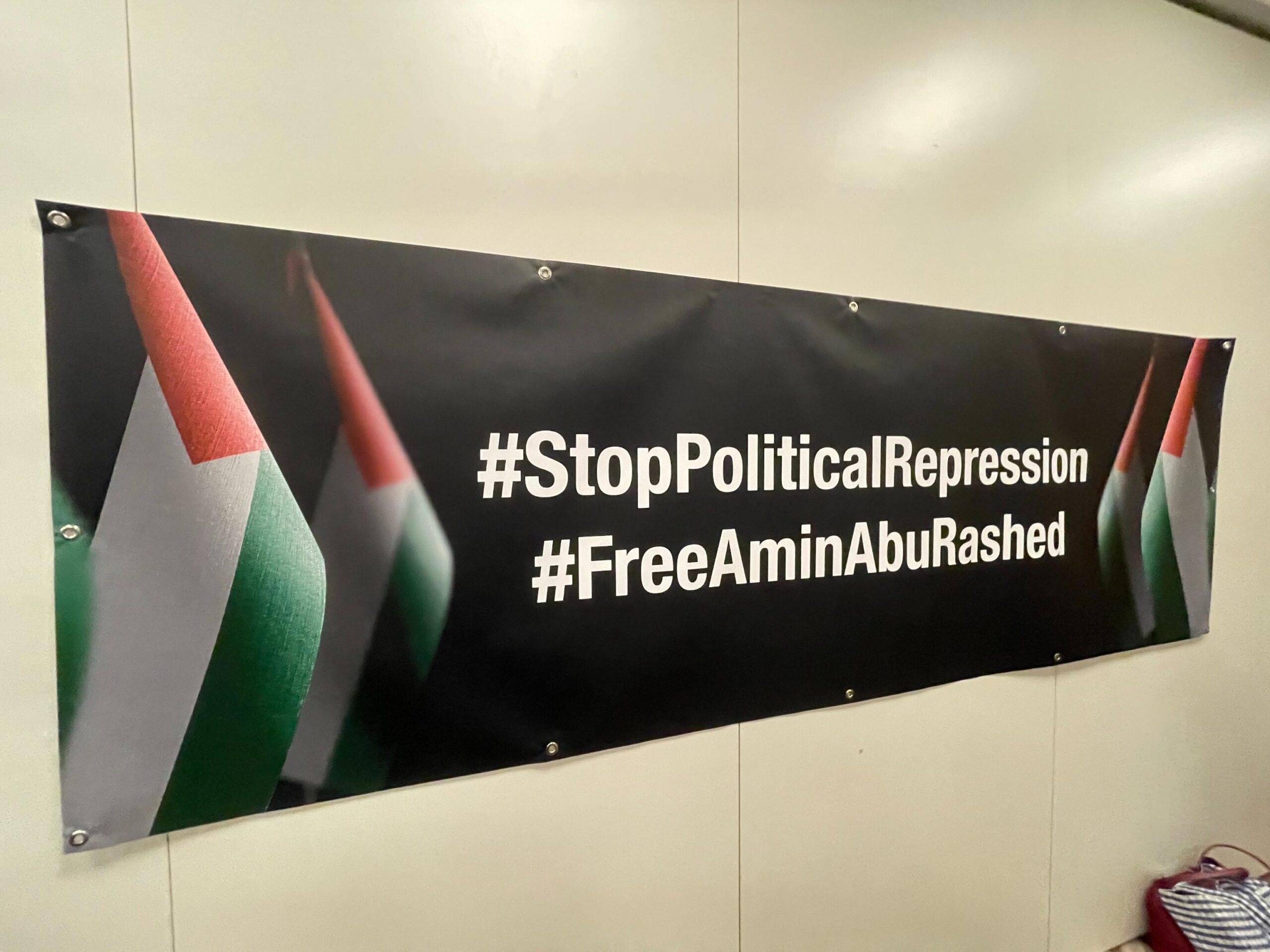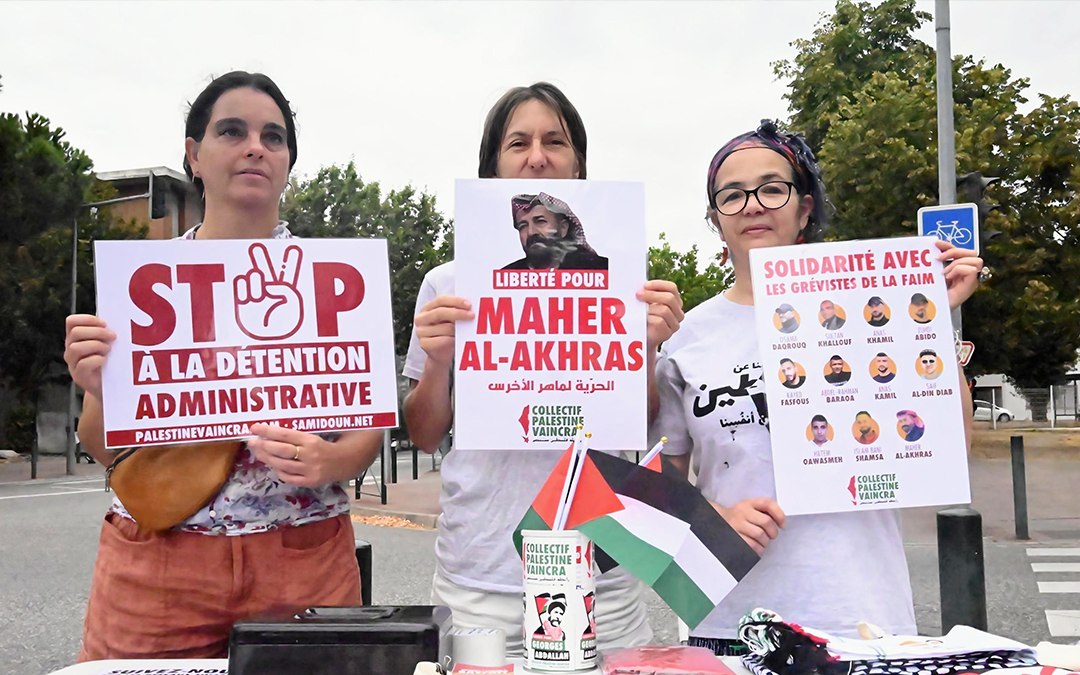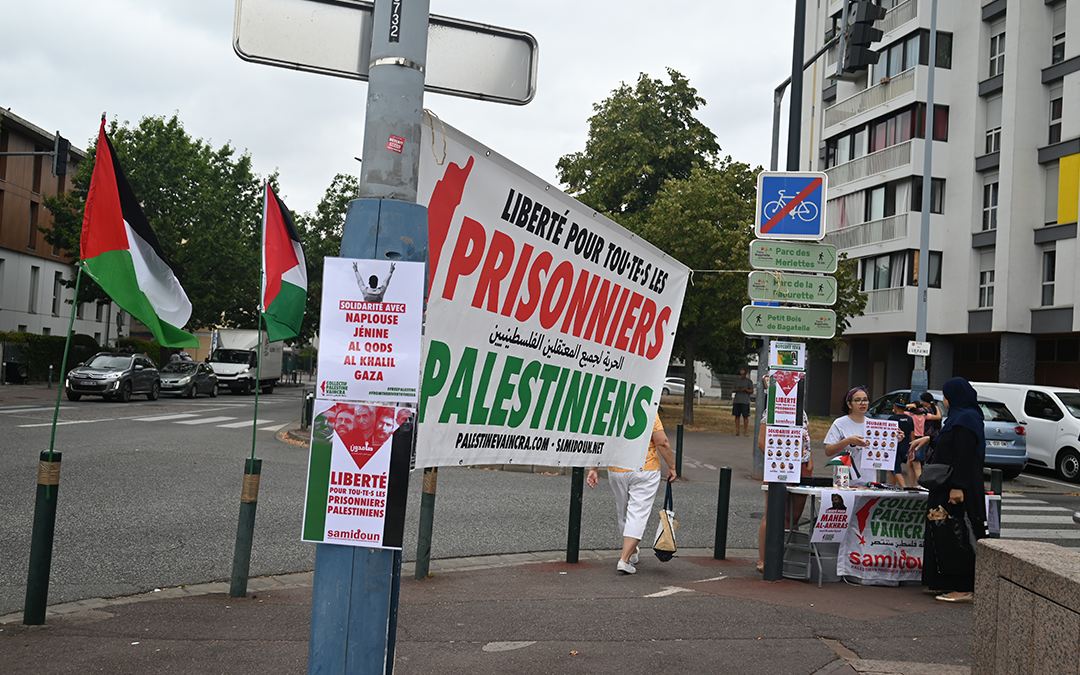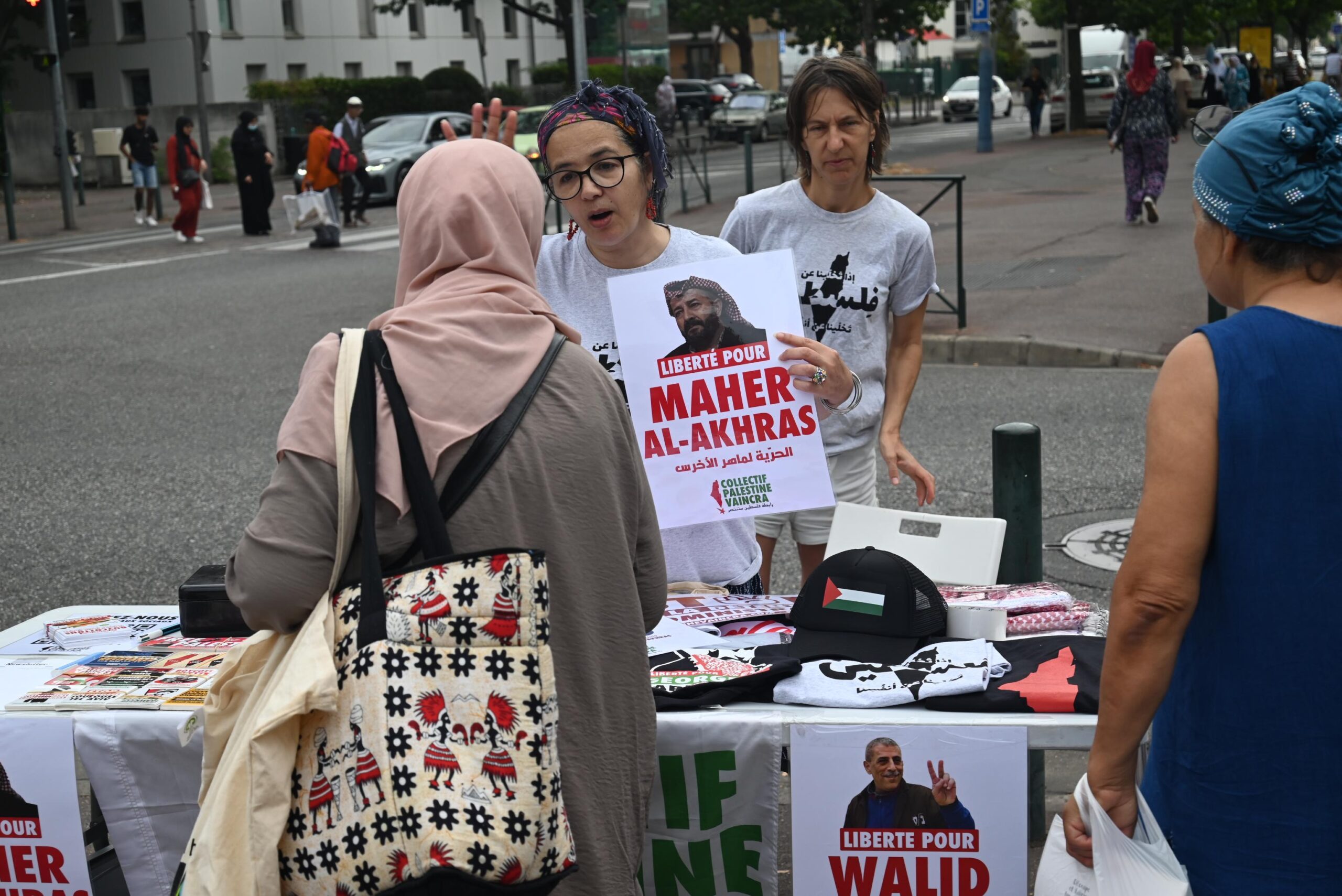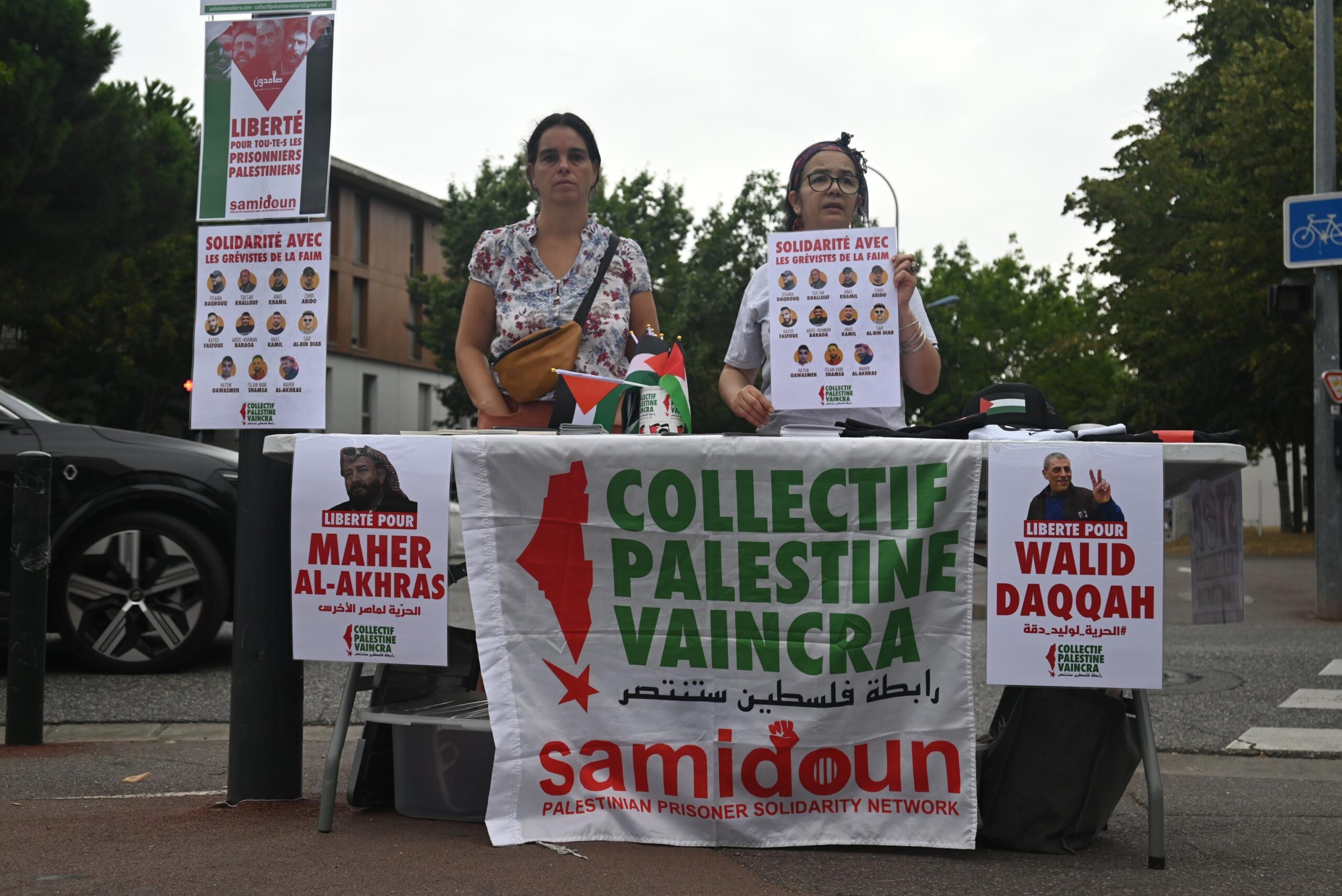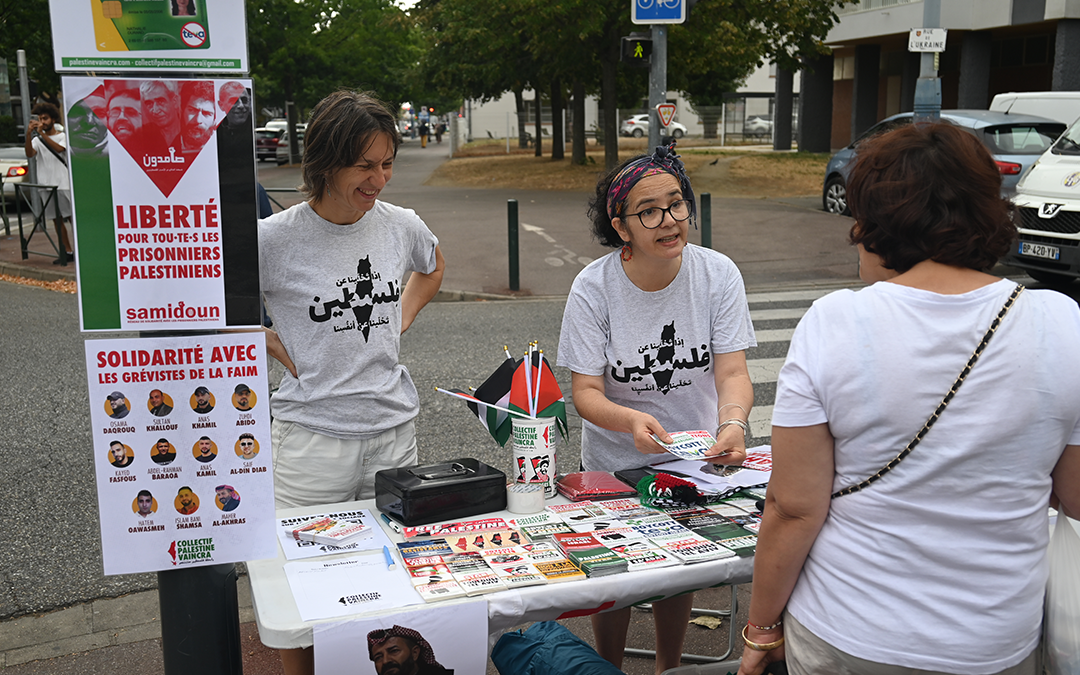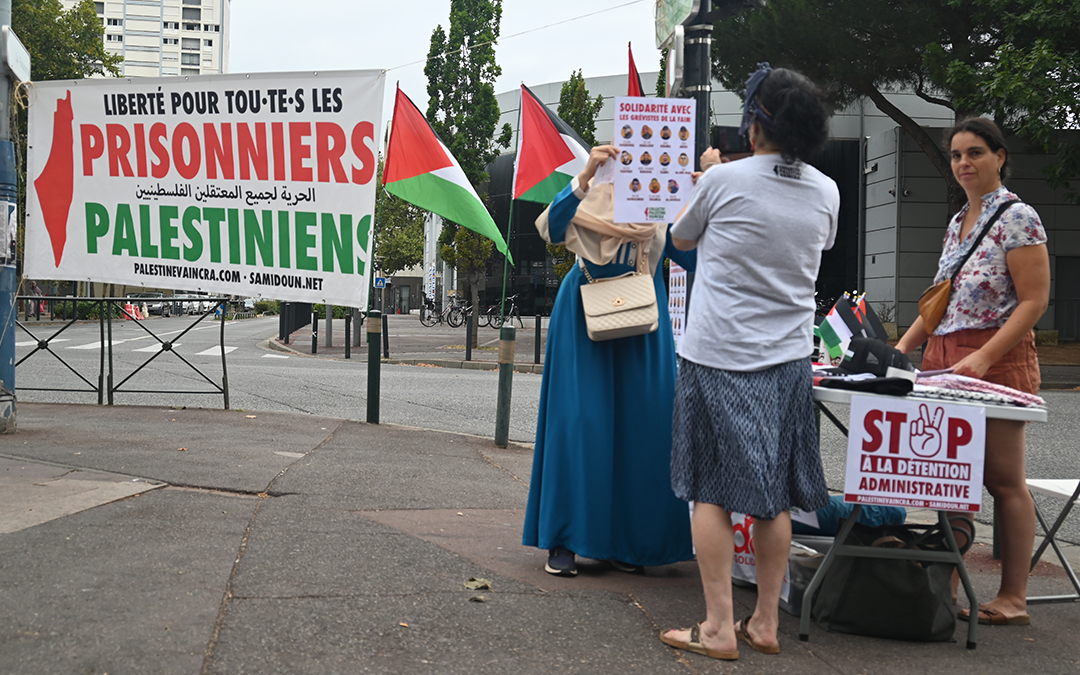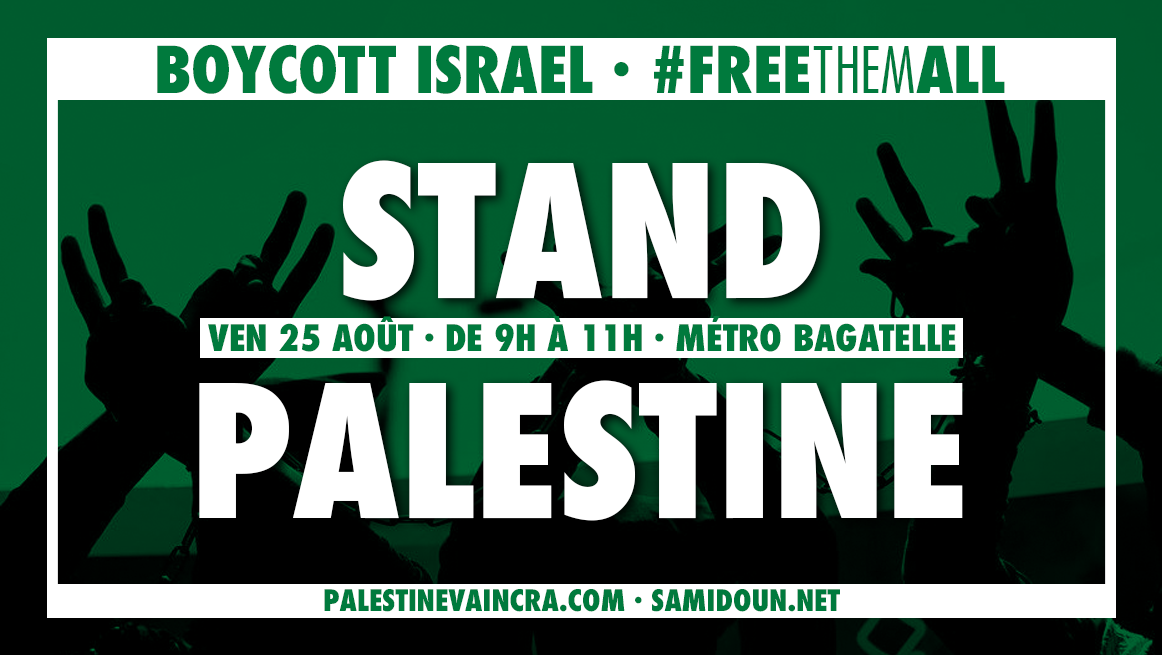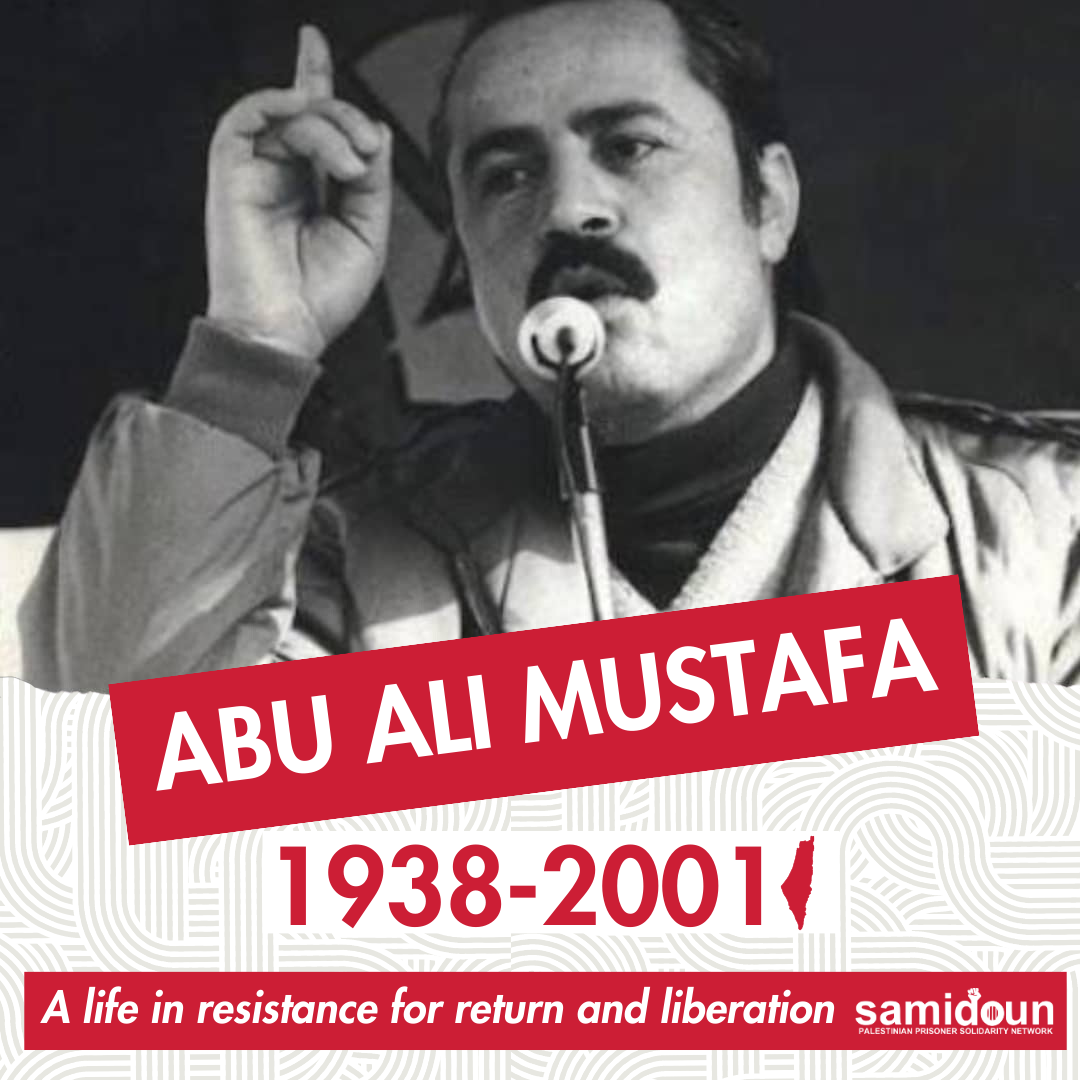
Portions of the statement and article below were previously published in our article, Abu Ali Mustafa: A life in struggle for the liberation of Palestine:
Today, 27 August 2023, we mark the 22nd anniversary of the assassination of Palestinian revolutionary and national leader Abu Ali Mustafa by Zionist occupation forces, using US-made and US-provided helicopter-fired missiles, in a bloody illustration of the alliance of Zionism and imperialism. The General Secretary of the Popular Front for the Liberation of Palestine, Abu Ali Mustafa was targeted in his office in occupied Al-Bireh, Palestine. He has become a symbol of resistance, Palestinian unity and confrontation of the occupation, known by his famous words when entering Palestine: “We return to resist, not to compromise.”
Samidoun Palestinian Prisoner Solidarity Network salutes Abu Ali Mustafa, a popular, revolutionary leader of the Palestinian liberation movement, committed to the Palestinian resistance, the Palestinian people and the liberation of Palestine, from the river to the sea, until his last moment. He continued his work even though he knew that he was targeted, because he was determined to never abandon the cause of the people, resisting and struggling in the Al-Aqsa Intifada and developing the struggle after the devastation of Oslo.
Pan-Arab struggler of the Palestinian working class
Abu Ali Mustafa was a son of the Palestinian popular classes, born in 1938 in Arraba, Jenin, Palestine. He left school in the third grade and worked as a boy in the factories of Haifa before and during the Nakba and the Zionist colonization of Palestine. At the age of 17, he joined the Arab Nationalist Movement, founded by Dr. George Habash (al-Hakim), Wadie Haddad, Abu Maher al-Yamani (himself a labour leader), Basil al-Kubaisi, Ahmad al-Khatib, Hani al-Hindi and their comrades, and played a leading role in the ANM of the 1950s and 1960s.
He was committed to the vision of pan-Arab liberation and resistance to Zionism and confronted the imperialist-aligned Jordanian regime, which banned political parties and acted to defend the interests of imperialism in the region at the expense of the Palestinian people and the Arab people as a whole. He was arrested and sentenced by a Jordanian military court for his organizing and spent 5 years behind Jordanian bars. Throughout his life, he was committed to the liberation of the prisoners from Zionist, imperialist and reactionary regime prisons, recognizing the use of imprisonment as a tool of colonial control aimed to target the liberation movement.
Developing the Palestinian revolution
Abu Ali was finally released from Jordanian prison in 1961 and became responsible for the northern district of the West Bank of Palestine, before he joined with his comrades in establishing the Popular Front for the Liberation of Palestine following al-Naksa in 1967. The PFLP reshaped the Arab Nationalist Movement along Marxist-Leninist lines, for the mobilization of Palestinian, Arab and international forces toward the defeat of Zionism, reactionary forces and imperialism.
In the context of this struggle, Abu Ali Mustafa played a key role from the earliest days in developing the PFLP and in developing the Palestinian liberation movement. He was always active behind the scenes and did not seek the spotlight; thus, he was well-placed to establish the underground organizations of the Front. In 1965, he attended the Egyptian military course to graduate officers at the Anshas school, skills he then dedicated to building the Palestinian military resistance. He led some of the earliest guerilla patrols to cross the Jordan river into the West Bank, working to coordinate resistance activities throughout occupied Palestine without being detected.
He struggled throughout years of exile in the resistance, from the battles in Jordan against the attacks of imperialist-backed monarchy, to the Palestinian camps of Lebanon. He became the military leader of the Front in Jordan until 1971 and commanded its forces, before leaving to Lebanon in July 1971. In 1972, he became the deputy general secretary of the PFLP, a position he served in for many years while continuing his work of building its organizations and military capacity.
Throughout his life, he was renowned for his caring, humbleness and sincerity, who loved his family, spoke with the people and integrated the experiences and ideas of the Palestinian popular classes to further deepen his leadership and action.
Returning to resist, not to compromise
He returned to the occupied West Bank of Palestine in 1999 — to his place of birth, Arraba, Jenin. He expressed clearly that his return to Palestine was accompanied by a very clear commitment to resistance and liberation, including and particularly the armed resistance. In 2000, at the sixth congress of the PFLP, Abu Ali Mustafa was elected General Secretary of the Front. His presence as a principled national leader in occupied Palestine was not a concession to the Palestinian Authority and the Oslo framework but served as a challenge to the so-called “peace process” — and this is why he was targeted for assassination. Over 50,000 Palestinians marched in his funeral in central Ramallah.
As a response to the targeted assassination of Abu Ali Mustafa, the PFLP elected its general secretary Ahmad Sa’adat — today imprisoned in Zionist jails — and targeted the notoriously racist Zionist tourism minister Rehavam Ze’evi several weeks later on 17 October. Ze’evi was widely known for his demands for the complete ethnic cleansing of Palestine. This response sent a clear message from the Palestinian resistance – that the Israeli assassination policy would not be tolerated and that an assassination of Palestinian leaders would be met with an equal response.
Confronting, resisting and defeating the assassination policy
The assassination policy of the Zionist project has always been part of a comprehensive project of elimination targeting the leaders, organizers and revolutionary voices of the Palestinian pople and their liberation movement. Abu Ali Mustafa’s name is joined with that of Fathi Shiqaqi, Abdel-Aziz Rantisi, Sheikh Ahmed Yassin Abu Jihad, Kamal ‘Udwan, Mohammed Yousef al-Najjar, Kamal Nasser, Wadie Haddad, Ghassan Kanafani, Mohammed Boudia, Basil al-Araj, Samir Kuntar and many more. This assassination policy includes the attacks on the Palestinian prisoners’ movement, from Ibrahim al-Rai, killed under torture, to the systematic denial of medical care to Sheikh Khader Adnan, martyred after 86 days of hunger strike, to the current attempt to assassinate Walid Daqqah behind bars through the policy of “slow killing” through medical neglect.
Just this morning, Zionist prime minister Benjamin Netanyahu once again declared his desire to assassinate Palestinian leaders, after the recent widely distributed interview of Hamas leader Saleh al-Arouri. As in the response to the assassination of Abu Ali Mustafa, the battles of the Unity of the Fields and the Revenge of the Free made clear that the Palestinian resistance will not relent under the assassination policy. In fact, Arouri himself stated: “Does the occupation expect that after its assassination threats, we will announce our surrender? No, these threats do not frighten us. We in Hamas are martyred like our people, we are arrested as they are arrested, our homes are demolished and we are being chased and pursued. This is the normal situation under the occupation. We fight because we must.”
Abu Ali Mustafa was known throughout his life as an organizer and a builder of organizations. Thus, it is appropriate that many institutions have been named to honor him after his martyrdom, from schools and sports clubs to the armed wing of the Popular Front, reflecting his wide-ranging legacy in the Palestinian liberation struggle.
This legacy lives on in the Palestinian, Arab and international revolutionary organizations and movements, and the people, always his compass, who continue to struggle for the liberation of Palestine from the river to the sea, for the return of the refugees, for the defeat of Zionism, for the uprooting of imperialism from the region and the world. These strugglers lead and fight so heroically from behind bars, under siege and in exile, despite all the internal and external difficulties that are being imposed upon them, confronting the forces of imperialism, Zionism and Arab reaction, as Abu Ali Mustafa did throughout his life.
He said: “We are all targets as soon as we start mobilizing. We do our best to avoid their weapons but we live under the brutal Zionist occupation of our lands and their army is only a few meters away from us…We have a job to do, and nothing will stop us.”
The legacy of Abu Ali Mustafa must inspire us all to action: to support the prisoners in their struggle, to fight back against imperialism, and to organize to bring an end to the assassination policy. Most fundamentally, Abu Ali Mustafa, a truly revolutionary Palestinian national leader, firmly upheld the Palestinian and Arab resistance, making clear that the people say “No” to normalization and negotiations, their eyes fixed on return and liberation.
When we act and organize on the path of Abu Ali Mustafa and his fellow Palestinian leaders targeted for assassination and imprisonment, we make clear that the assassination policy will never succeed in defeating the Palestinian people and the Palestinian, Arab and international liberation movement. This anniversary is not merely a historical occasion, but a call to action – to act together with the Palestinian prisoners, to support the Palestinian people and their resistance, and to realize the vision of Abu Ali Mustafa and of the Palestinian people – for victory, and for the liberation of Palestine, from the river to the sea.
More resources:
We are republishing below Khaled Barakat’s 2017 article on Abu Ali Mustafa, “The Lessons of the Revolutionary Worker:”
Published in Al-Adab, September 2017 issue (Original in Arabic)
“We are a party with a glorious history and high respect among the people, but this does not justify the state of retreat or decline that is facing us. A party that does not renew itself, with more giving and more action, is one that will fade away…” (The martyr Abu Ali Mustafa, al-Hadaf, 31 July 2000)
What is the main historical contribution of the martyred leader Abu Ali Mustafa in the Palestinian and Arab resistance movement in general, and in the Popular Front for the Liberation of Palestine, as whose secretary-general he was assassinated by the Zionists on 27 August 2001, in particular?
What are the elements of the self-motivation that made an impoverished boy working in the Haifa factories, who did not complete the third grade, from the village of Arraba in the occupied district of Jenin, to become one of the most prominent Palestinian and Arab revolutionary leaders of our time?
And if his fellow leaders, such as “al-Hakim,” Dr. George Habash; the writer Ghassan Kanafani; the “Revolutionary Engineer” Dr. Wadie Haddad; and many others have left important imprints in the fields of political thought, revolutionary literature, journalism, media and guerrilla action, then what is the imprint of Abu Ali Mustafa on the Palestinian and Arab struggle in general and on his party’s march in particular that made him the exceptional leader who says little, but does much?
The answer is one word: organization.
Yes, the construction of the organization was the craft of his diligent and stubborn perseverence: building the pillars of the Arab Nationalist Movement and then the Popular Front. It is an arduous task for those who take it seriously, as did this great leader. Organization is a part of the struggle that some comrades “evade” even though they may not run away from death itself(!) because it requires the mixture of the determination and patience of dedicated workers and the wisdom of a special type.
This work – party building – is rarely highlighted. This is due to its close association with burning internal issues directly related to the life, security, relations and tasks of the party. Those with long experience in armed action and the building of revolutionary organizations realize the difficulty of the tasks associated with this aspect of party and struggle activity.
What is organization?
It is the daily workshop that the eye does not see, but without it, one does not see at all. Without this workshop, you will not see any real results in the streets and the field, and it will be difficult to measure the level of progress and regression or gain access to the criteria for proper evaluation and criticism.
Internal organizational work not only lays the “foundations” of party principles, but also establishes theoretical, intellectual, and moral principles. This painstaking work is akin to the circulation of blood in the body of the party, which ensures the integrity of its line and the democratic processes of its ranks. It strengthens its ability to continue the struggle and develop its immunity and ability to eliminate the manifestations of corruption, calcification and stagnation.
Abu Ali Mustafa treated the Popular Front as his “daily workshop” that does not rest and does not sleep. If the party is the embodiment of the will of its members and supporters, all of them must participate in its construction and give their opinions in absolute freedom, so no one rank will confiscate the rights of another rank, nor one comrade confiscate the rights of another comrade.
How can each body and institution guarantee its rights while doing its duty at the same time? How do you know its role and limits? And how to preempt conflicts before they occur? What is the relationship of the Popular Front organization in the occupied territory with the status of the party organization and its leadership outside Palestine? How is the daily relationship organized with the Prison Branch? And many other questions.
All this happens within this daily workshop, which is called organization. Abu Ali was firmly convinced that the members of his party were the cells of one body: skilled workers who built the house together, advanced by revolutionary cadres that serve as “work crews” for the home, engineers, technicians, maintenance workers, electricians, and so on…
Therefore, there is no real construction without real participation, harmony in vision, and without this set of theoretical and ethical values that draw members of the party together, one to the other. But the role of the leadership is to provide the solution and lay out the vision and adjusts it according to the collective principles of the work, away from personalization, hypocrisy, flattery and opportunism. This is a necessity in order for the members not to be lost.
In an internal letter after receiving the duties as the General Secretary of the Popular Front, written in September 2000, Abu Ali said the following:
“How do we understand internal conflicts in the party, especially in the framework of the leadership bodies? Is this new? Is it a negative phenomenon or a natural phenomenon? Have the new circumstances of the Palestinian national liberation movement come to deepen these contradictions, exacerbate them, or did it raise them to a new level? And what is the nature of these levels? These are some of the questions that may be raised in the mind of any comrade, and even need to be asked with other questions to understand the changing of attitudes and interpretations within a sound, correct framework at the theoretical and organizational levels.”
Therefore, Abu Ali Mustafa was not only fighting for the rights of his people to liberation and return, but he was equally as strongly building the revolutionary tools that could create the act of liberation and help people to extract their confiscated rights: from the women’s institutions to the youth organizations, to the institutions for students, workers and charity, and for military action. These tools are the vehicles of the revolutionary organization.
Early on, Abu Ali realized that the readiness for struggle for Arab unity and the liberation of Palestine was not a sufficient condition for active participation in change and confrontation. Therefore, if he wanted to advance in the ranks and fields of sacrifice and redemption, it was first necessary to “build himself with his hands.” This means that he must read books, newspapers and magazines, talk with his comrades, listen to what people say, and participate in various fields of work: from distributing pamphlets (Al-Thaer, Al-Rai), to collecting donations, reaching to preparation of armed struggle. Abu Ali Mustafa listened more than he spoke in order to gain more knowledge of the pulse of the people and their needs, guided by ancient wisdom: “Those who do not renew themselves, will inevitably dissipate.”
For further self-development, the martyr Abu Ali joined Anshas Military College in Egypt and subjected himself to internal development processes that included refining his mind, body and will. It was a stage that provided him with practical and direct knowledge of weapons, theoretical knowledge of people’s experiences and strategies for wars of popular liberation and guerrilla wars. And, most importantly, that he received his share of the vibrant culture of Greater Egypt in the time of the late President Jamal Abdel Nasser.
Thus, this professional revolutionary worker fought a series of battle experiences and gained new skills. But he also tasted powerlessness, like hundreds of fighters and revolutionaries in the 1950s; that is an inevitable tax that militants must pay if they walk on the path of unity and the liberation of Palestine. Abu Ali knew these experiences prior to the establishment of the Popular Front for the Liberation of Palestine (PFLP) in 1967, and before its real renewal (as a united party) in February 1969, and he was subjected to prosecution, imprisonment, injury, financial deprivation and the loss of his job. He was forced to clash with friendly forces, sometimes with comrades. He tested many other experiences and challenges, and he developed a leader’s personality, which combined firmness with goodness, intelligence and flexibility.
***
This young worker was not in great need of the books of Constantine Zureik and Michel Aflaq to convince himself that he was a colonized Arab citizen. He did not need Karl Marx and Lenin to know that the poor worker was forced to sell his labor power for bread, and it was not necessary for Mao Zedong to convince him that the peasant must carry weapons to liberate his land from colonialism, oppression and subordination. But his devotion to his people pushed him beyond the “school and university” learning of which he was deprived, so that he could turn to the deep, quiet reading. The phrase “Abu Ali worked on his condition and built himself” is a common phrase in the Popular Front, especially on the tongues of those who knew and lived with him.
This young peasant from Jenin discovered that what he and all the young Arabs needed was a revolutionary youth wing: a vigilant student group that studied in Beirut and announced the launch of an Arab project that promised Arab change and unity. It was the “Arab Nationalist Movement,” which embraced various groups, but its focus was on the masses of refugees who had been displaced from their homeland. This was the natural response to the Nakba of 1948. This movement was discovered by Abu Ali Mustafa in Amman in the early 1950s and he joined its ranks without hesitation, and became one of its cadres, costing him 5 years of torment in the cells of the Jordanian regime without any reason or crime committed.
Abu Ali addressed the big guerrilla missions: transferring equipment and weapons to the occupied territory, building cells, providing money to fighters, direct supervision of training camps, building a network of secret contacts and other heavy and dangerous daily tasks that led him to become the military commander of the PFLP forces in Jordan. These tasks gave him more experience in the field each day; the more the enemy camp would close doors in front of his comrades, he would open new doors, roads and fields with determination and cleverness, in their vast Arab homeland, in exile and in distant lands.
This secret and solid effort, which was founded by Abu Ali and his colleagues, transferred the movement of the Palestinian people and its cultural and political elite from the stage of preaching the revolution to the stage of actual implementation of it by fire, speech and popular organization, and by building bases for the establishment of the revolution around occupied Palestine, especially after the defeat of 1967. His focus was on the path of the long-term popular liberation war, through its revolutionary apparatus, represented by the Popular Front for the Liberation of Palestine (PFLP).
***
Abu Ali was not looking for fame. The Kuwaiti newspaper, Al-Rai Al-Aam, interviewed Palestinian leaders on the 16th anniversary of the launch of the Palestinian revolution. Among them was Abu Ali Mustafa: “… the man who does not like the spotlight and is known in the Palestinian circles for his silent, hard work, far from the noise and clamor.” (Al- Hadaf magazine, 17/1/1981, p. 16). However, his choice to stay away from the lights and noise in order to build the organization did not prevent him from reading and researching in order to develop his perception, culture and Arabic language skills. His presence in Iraq, when he was in charge of “the rear command in Baghdad,” allowed him to read more, to engage with Arab forces and figures and to balance politics and culture.
In that period he wrote an important economic and political study in 1975 on the “economic foundations of the coming settlement project” and presented it at a political symposium in Baghdad. In this symposium Abu Ali predicted the inevitability of the collapse of the Sadat regime, and that the Egypt of Sadat cannot be the Egypt of Nasser, but is on the road inevitably to a “peace deal” that will have serious implications for the whole region, because what determines the direction of systems and their relationship to the United States and Israel is, in his view, the nature of the political, economic and social system.
As for the Jordanian regime, he considered it a reactionary power and an agent of colonial powers. He believed that this regime had specific functions: protecting the Israeli occupation in order to preserve the power of the ruling class and the authority of the financial tycoons of Jordan, and that this regime will continue to work for a peace deal with Israel along the lines of the Sadat approach. Abu Ali said to his colleagues in a graduation ceremony of the Ghassan Kanafani Officers Course at the Military College of the Popular Front in Beirut in response to those who claimed that the Jordanian regime has changed and that the relationship between it and the Palestine Liberation Organization must be rearranged:
“On what do we agree with the Jordanian regime? Is the Jordanian regime a partner in determining the fate of our people? Is it permissible to have a single military base there? It is an actual partner in the second stage of Camp David.” (Al- Hadaf magazine, 5 April 1980).
Of course, Comrade Abu Ali did not expect in his worst nightmares that the leadership of the PLO would sign agreements with Israel and “precede” the Jordanian regime, albeit in a formal and public sense. But this step did not break the spirit of will in this stubborn revolutionary worker, and did not prevent him from being aware of its potential effects in the organization. So he wrote to us, his comrades at the Front, in an internal message:
“Comrades, as a people, a cause and a party, we are facing and living in the midst of a difficult and complex stage that dictates harsh challenges to us, and this stage has its political, intellectual, social, cultural and military problems which are constantly moving and changing. If we do not understand our diversity of views on the basis of preserving unity and cohesion, the leadership bodies will suffer from the vibrations and tensions that will affect them and their work,” he said.
***
The martyr Abu Ali Mustafa did not leave us a book to read. However, his experience in struggle is a living book that no one can confiscate. We must read it time and time again. In his experiences, you find most of his thoughts, observations and convictions, which he confirmed with blood and did not retreat for one moment. Indeed, reading this leader’s experience is a true introduction to the experience of the entire PFLP and its reality between yesterday and today, and helps us understand the very meaning of revolutionary leadership.
